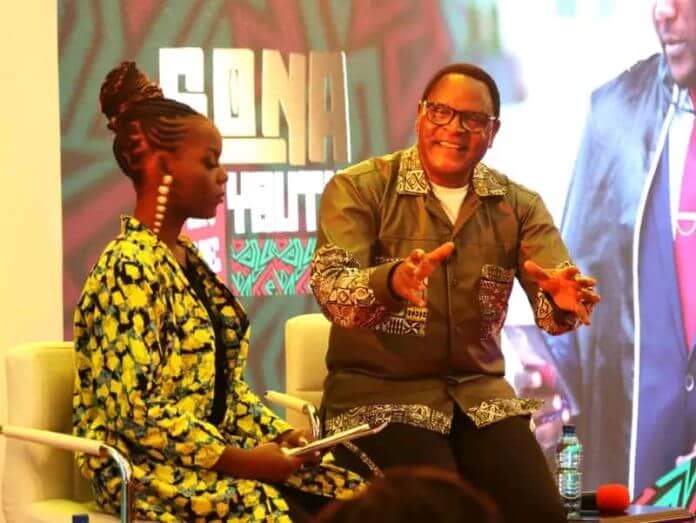
6 Train up a child in the way he should go, and when he is old he will not depart from it. — Proverbs 22:6
Many times when bringing forth strategies for the progress of the nation, it has been the habit of These Freedoms to jump back into history, into the first 30 years of the country’s taste of freedom and self-rule after the pain of colonial rule. Thus this week as the debate rages on about our next leaders, what comes to mind are questions such as “What did Kamuzu think about youth? What did he say about them and what did he do to accomplish those thoughts about the youth of the country?From such an exercise, the country can then move forward, taking the good only, of course and leaving the bad behind.
As a product of the University of Malawi, and also as a benefactor of the Kamuzu Academy (two of my sons are alumni of the KA), I witnessed Kamuzu’s plans for lifting up the country (the most impoverished in the region), through educating the young. He often reiterated the phrase that the youth are “the future leaders of Malawi.”
Thus the establishment of the University of Malawi in 1964, has come a long way in redressing the imbalance at the dawn of independence that existed between the black people and the white colonials.
Graduates from this institution went into corporate Malawi and shadowed expatriates, who in time left the country; others went into the civil service.
On the other side: the Malawi Young Pioneers (MYP) was originally set up supposed to function as a national youth service program with a development agenda.
Kamuzu believed in empowering young people regardless of their status.
The establishment of Malawi Young Pioneer organization through the 31 years, assisted young men and women to be self-reliant by imparting in them different skills such as farming of crops and animal husbandry, brick-laying, welding, tailoring, carpentry, shoe cobblers, etc.
In his May 14, 2021 article Chikondano Chilimunthaka concluded that it is not a disputable fact that Dr. Hastings Kamuzu Banda was a hero, a champion, a father, a true son of the soil worthy of celebrating his life.”
Jump! Jump! Jump to 2025, and many may rightly ask “where are the young people of Malawi?” “Are Malawians electing them into decision-making offices, or are the Madala Team group still clinging on to power for dear life?”
In 1994, Malawians swept away the Life Presidency and many other long-term serving elected leaders. Or so, it might look that way. Looking around, many of the country’s leaders are either in their 60s or 70s and a few that are inching towards 80 years of age. Why has the country shunned or shied away from having youthful leaders to take the reins of power and steer the country?
Rather than ask, why are my fellow old geysers still flirting with holding on for dear life to leadership positions, perhaps, there is the need to take a fresh look at and consider why the country should be electing young people. Again, the old people should retire from politics, release the reins of authority, and give the young’uns the opportunity to flourish and reach the potential of sitting in the plush seats of authority, seats of decision-making that will steer the country into its future, as Kamuzu envisaged.
Permit me to introduce, fresh out of the oven of a youngster, some thoughts on the wisdom of electing young people into leadership positions. He promotes voting for youthful people with four brilliant reasons. They are as follows:
1. Fresh Perspectives and Innovative Ideas are brought to the table by young leaders, driving progress and reform. Young people are more likely to be invested in the future of their communities, making them more motivated to create positive change.
2. Representation and Accountability are also key benefits of having young people in leadership. When young people vote, they help to ensure that their unique concerns, such as education and job creation and opportunities, are addressed. Moreover, young leaders are more likely to be accountable to their constituents, as they are more connected to the community and its needs.
3. Breaking Systemic Barriers is also essential, as young people, especially those from marginalized communities, face systemic barriers to voting and leadership. By voting for youthful people, we can help break down these barriers and create a more inclusive and representative democracy.
4. Increased Political Engagement: When young people see their peers in leadership positions, they are more likely to become engaged in the political process, leading to a more active and informed citizenry.
In conclusion, voting for youthful people into leadership positions is essential for bringing fresh perspectives, ensuring representation and accountability, breaking systemic barriers, and increasing political engagement. It also eases the fear of correcting wrongs when committed by the elder Madala Team leaders.
Up up with youthful leaders in Malawi! Up up with progress!
Discover more from The Maravi Post
Subscribe to get the latest posts sent to your email.




